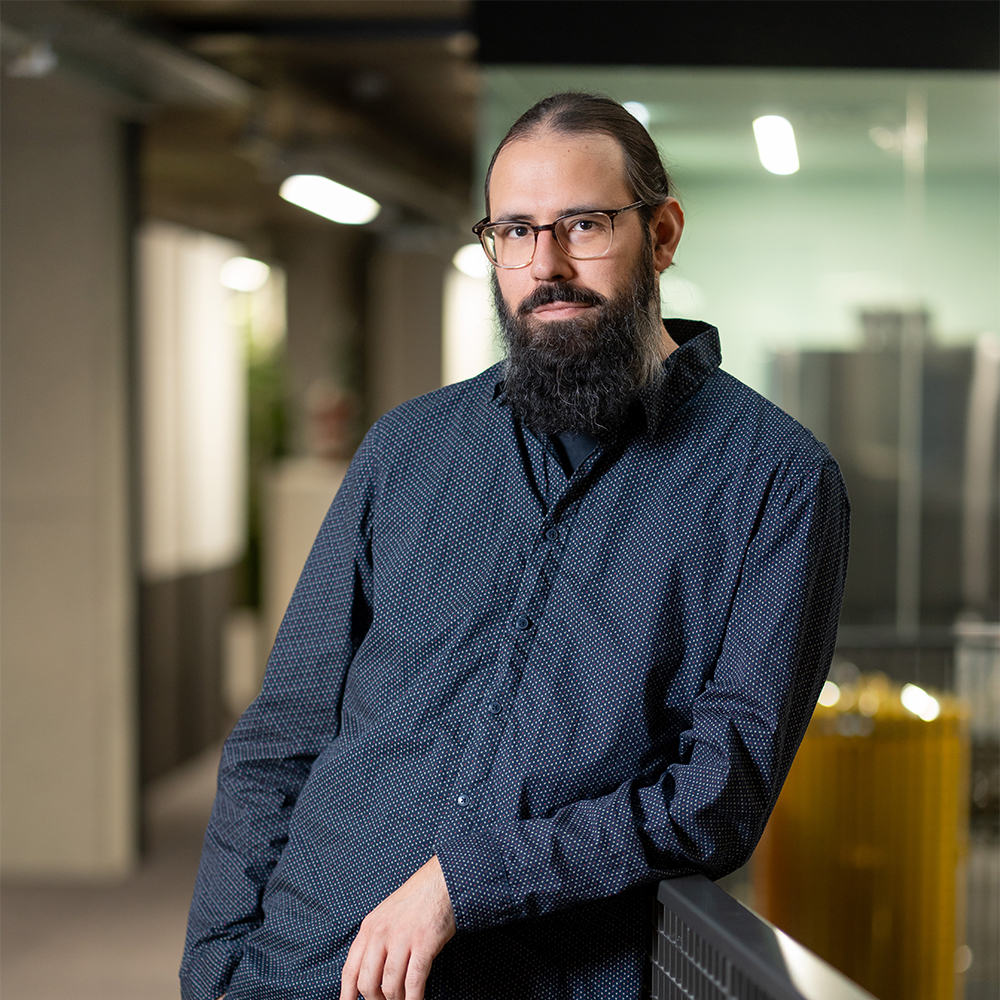Human-Computer Interaction
Our research explores relationships between humans and computational artefacts in complex worlds. We have analytical and generative ambitions, i.e. we seek to design and understand the use of cutting-edge digital technologies such as Artificial Intelligence, Extended Reality or advanced Robotics within people’s lifeworlds which are shaped by the societal and environmental challenges of our time – designing alternative futures.

 Christopher Frauenberger
Christopher Frauenberger
